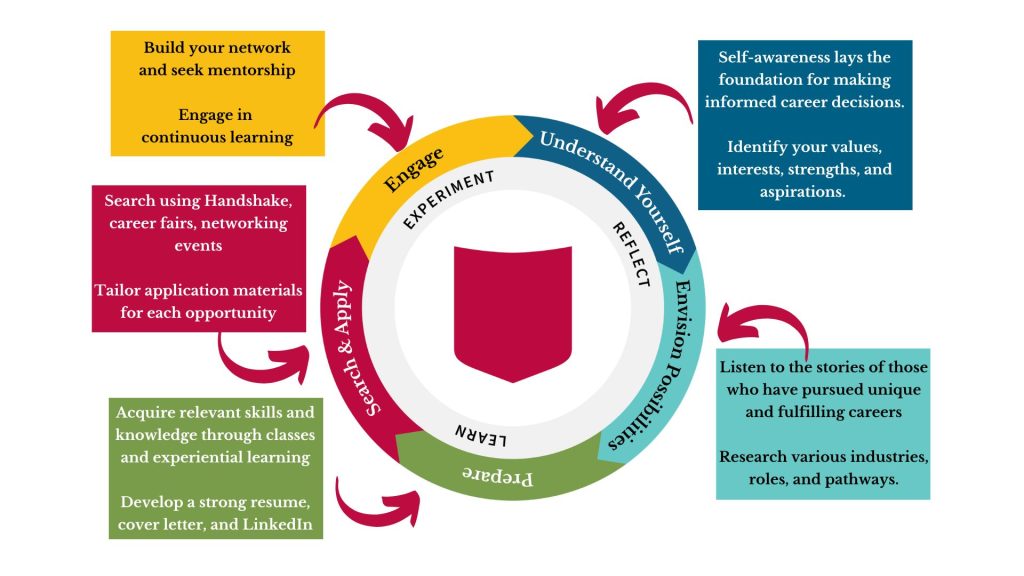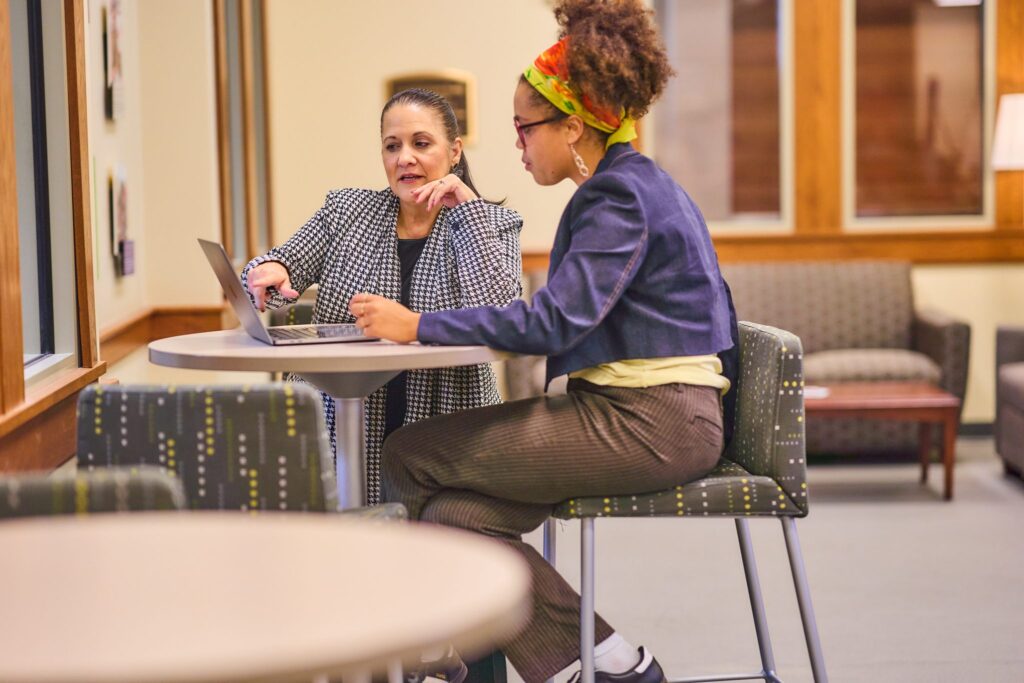The CCE doesn’t just prepare students for jobs—it helps them discover who they are and who they want to become. From the moment students set foot on campus (and often before), the CCE encourages early engagement grounded in exploration and self-discovery.
“We do not expect our students to know exactly what they want to do when they get here,” explained Guerra Gaier. “But during their time at WashU, we believe it’s important for them to engage in a career development process and that really begins with students understanding themselves.”
According to Guerra Gaier, in Fall 2024, 97% of incoming, first-year students joined at least one career community before arriving at WashU—a powerful sign of curiosity and readiness to explore. These interest-based communities, ranging from healthcare to design to tech, serve as entry points for students to learn, experiment and grow. They are not about locking in a path but about opening doors.
“Our goal is to meet students where they are and guide them through a process that begins with understanding themselves—their strengths, interests, and values,” said Guerra Gaier. “This is key for us to engage students not in career decision making, but in career thinking and exploration, and this allows the student to often realize possibilities they hadn’t even thought were possible.
The CCE’s ICF-trained career coaches are key partners along the way. They take a holistic, student-centered approach, helping students reflect deeply, experiment boldly and connect authentically.
Five-phase career development model
- Understanding yourself
- Envisioning possibilities
- Preparation
- Searching and applying
- Engaging

Whether a first-year student exploring majors or a senior navigating job offers, every conversation is designed to empower, not prescribe. They also assist with graduate school preparation and continue to support alumni post-graduation.
“[Once students understand] their competencies, their potential skills, their interests, and most importantly, their values and how that informs what they want to do, we then want to take them through a process of exploring their possibilities,” said Guerra Gaier. “We have numerous resources on our website that allow students to engage with different types of experiences, whether it’s an early career experience, a micro internship, an internship, or even a project, we have resources that connect them to those possibilities.”
Career Communities
These are interest-based groups (e.g., healthcare, tech, design) that offer targeted events, resources, job listings, and networking opportunities. Students can join more than one and engage with peers and professionals in their chosen fields.
Early Engagement = Exploration
Career support starts as early as orientation. Students are encouraged to attend events, explore interests, and meet with coaches early—even in their first year—to start building their career readiness. Engaging with the CCE, then, is not just about preparing for a career. It’s about starting a journey of self-discovery that shapes how students approach learning, relationships, and purpose itself.
